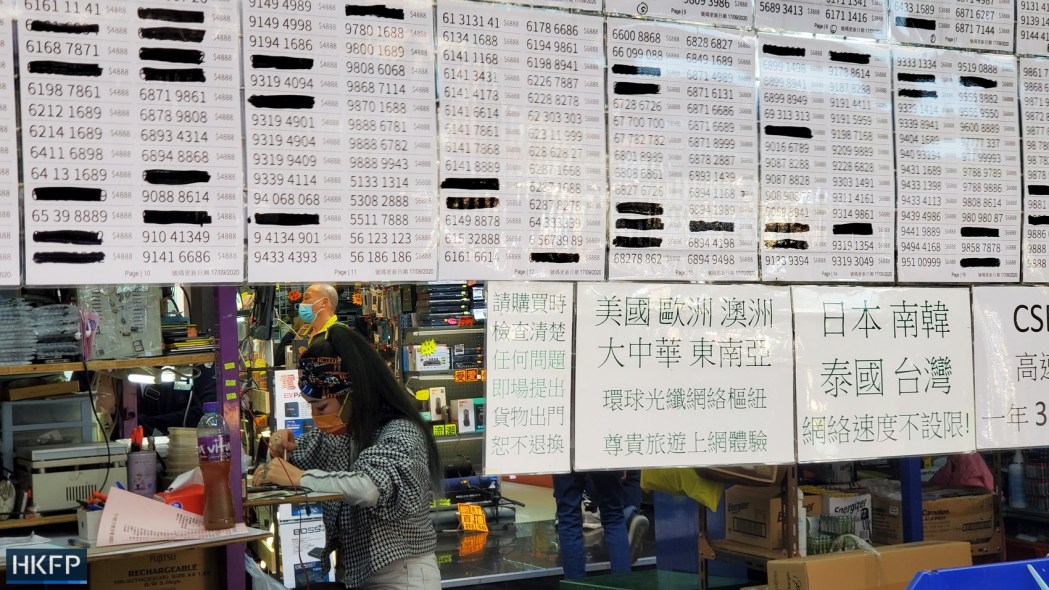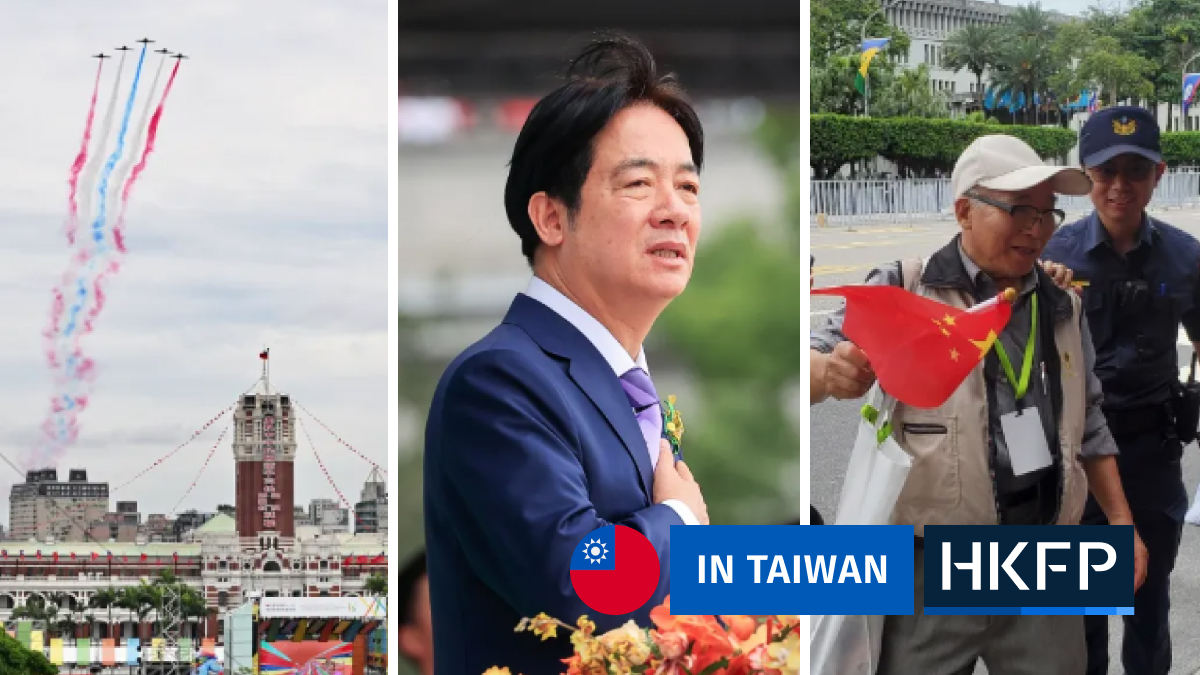Hong Kong retailers of pre-paid SIM phone cards fear losing their livelihoods if the government goes ahead with plans requiring buyers to register their identity. The proposal has also sparked concerns about privacy and surveillance, and increased inconvenience in accessing the internet.

Dozens of street stalls along Apliu Street in Sham Shui Po, the go-to place for cheap electronics, gadgets and anything related to mobile phones, offer hundreds of pre-paid SIM cards for different purposes. For less than $50, a user can buy roaming data cards intended for travel to popular tourist destinations like Japan, Taiwan, the UK or the US; local SIM cards that can be used in mainland China to circumvent internet censorship; or cards linked to an auspicious phone number.
Selling roaming data SIM cards used to be retailers’ bread-and-butter. But sales have plummeted 80 to 90 per cent since the Covid-19 pandemic halted air travel and overseas vacations, sellers told HKFP on Monday.
The government plans requiring buyers to register may threaten the industry further. They will have to give details including their full name, date of birth, and a copy of their identity card under the proposal.
“I think this will be the end of our industry,” said Kate Hui, who has operated a pre-paid SIM card market stall on Apliu Street for six years. “We do retail, and make a few dollars’ profit on each SIM card. If we need to spend extra time registering these cards for our customers, it will not be worth the effort.”

The government’s plan, similar to current measures on the mainland, will mean Hongkongers can no longer buy “grab-and-go” SIM cards.
“I feel lost. We may have to look for another path, some other business to do,” Hui said. Since the government last week announced the new measure and a month-long public consultation period, Hui has not seen a surge in card sales but has fielded customer enquiries as to when the changes may happen.

She dismissed the government’s claims that SIM registration will help prevent crime, the ostensible reason for the plan.
“For phone scams, we don’t know if [the scammers] are in Hong Kong, or if they use Hong Kong cards,” Hui said, adding many of them call from foreign numbers. “These are not related to Hong Kong and won’t go away with SIM registration here.”
Under-Secretary for Security Sonny Au said on Friday the measure would prevent illegal activities such as online shopping scams, the impersonation of government officials, human trafficking, and attacks with home-made bombs.
Hui’s customers typically purchase extra SIM cards to supplement their mobile phone plans once their monthly data quota runs out. Requiring registration will make this impossible, she said.

One of her customers, Mr Liu, was selecting such a card after burning through his monthly plan. “Absolutely nothing good will come of it,” he said of the government’s proposal. “It’s just going to be harder and more of a hassle for us to buy cards. If they require registration, I would have to increase my data plan.”
Liu said the government “is using these little tricks for surveillance. But it will not stop Hongkongers from using unregistered cards purchased from overseas.
“It will only increase inconvenience and surveillance for ordinary Hongkongers,” he said.

A few stalls up the street, Mr Yiu, who does not subscribe to a WiFi service at home, was searching for a card offering a large amount of data for his SIM router, which substitutes for a wired WiFi router. “In the global context, I think [SIM registration] is needed,” he told HKFP, pointing out similar requirements in Taiwan and Japan.
He said registration would not deter him from purchasing new cards, “but in terms of freedom of speech, citizens might unknowingly violate the law if they said something on the line and it’s immediately linked to their identity, as we still don’t know how the situation might become under the national security law,” he said. “It might cause white terror.”

Mr Lau, a SIM card seller in his seventies, appeared resigned to the idea that he might have to shut up shop. “Of course it will affect our livelihood but it’s just our individual interests,” he said. “Perhaps [registration] would be better for society. I don’t know about politics.”
“There isn’t much we can do if the government regulates it. We can’t oppose it as ordinary citizens,” he said.
Support HKFP | Policies & Ethics | Error/typo? | Contact Us | Newsletter | Transparency & Annual Report | Apps
Help safeguard press freedom & keep HKFP free for all readers by supporting our team

LATEST FROM HKFP
HKFP has an impartial stance, transparent funding, and balanced coverage guided by an Ethics Code and Corrections Policy.
Support press freedom & help us surpass 1,000 monthly Patrons: 100% independent, governed by an ethics code & not-for-profit.










